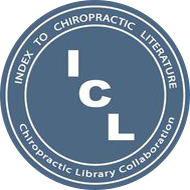Objective: The aim of this study was to evaluate trunk repositioning sense after an acute muscle fatigue protocol and during a 30-minute recovery period.
Methods: Twenty healthy participants were asked to reproduce a 20° and 30° angle in trunk extension. Participants were tested before and after a Biering-Sorensen fatigue protocol was performed. Movement time, peak angle variable error, constant error and absolute error in peak angle were calculated and compared between 4 temporal conditions in both 20° and 30° extensions.
Results: The statistical analysis revealed a main effect of angle between 20° and 30° extension condition for variable error, absolute error, and movement time. A main effect of time was also found and was characterized by a significant increase in variable error between the prefatigue condition and the first postfatigue condition. During recovery, a significant decrease in variable error was observed between the first postfatigue condition and the 30-minute postfatigue condition, indicating that the variable mean scores were similar to initial values.
Conclusion: Lower back muscle fatigue induced changes in trunk repositioning sense indicators immediately after the fatigue protocol. However, the observed changes did not last for more than a few minutes.
This abstract is reproduced with the permission of the publisher; full text is available by subscription. Click on the above link and choose a publisher from PubMed’s LinkOut feature.
|
